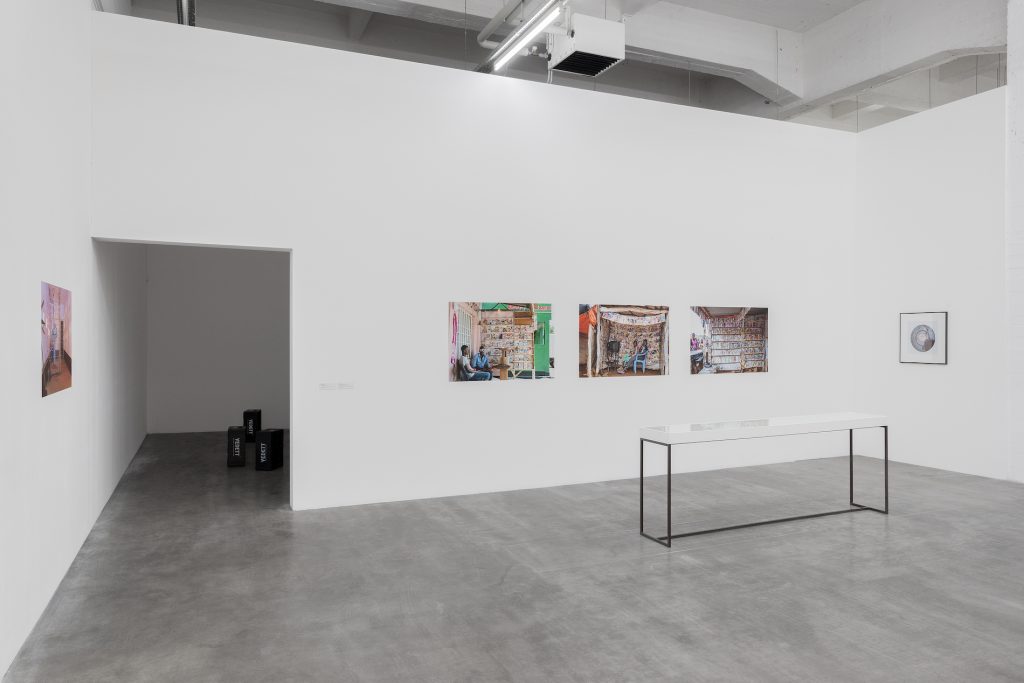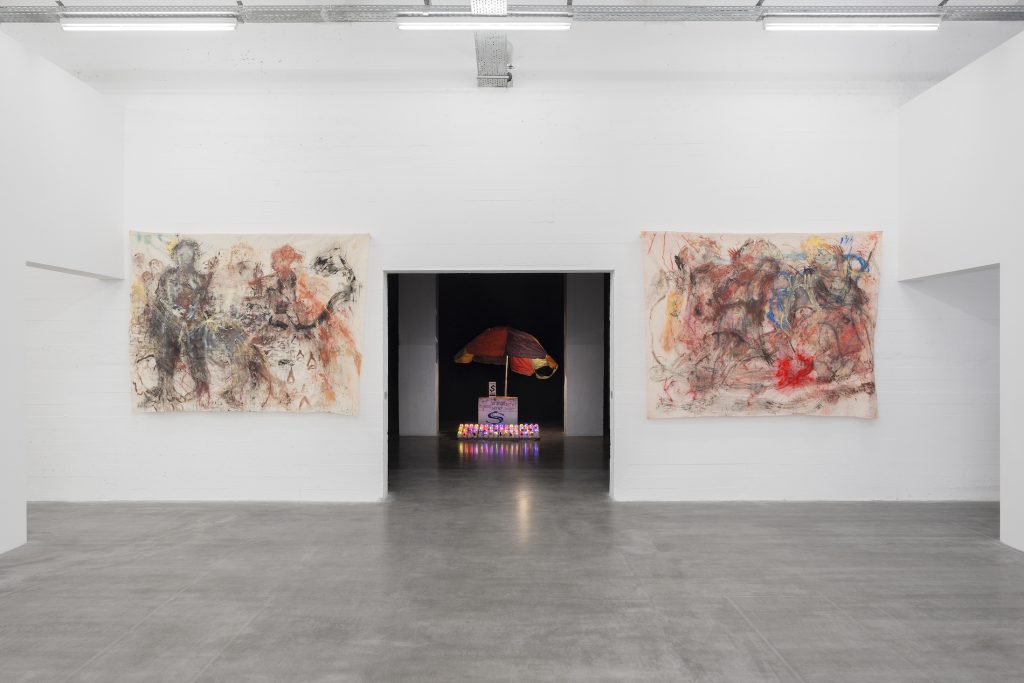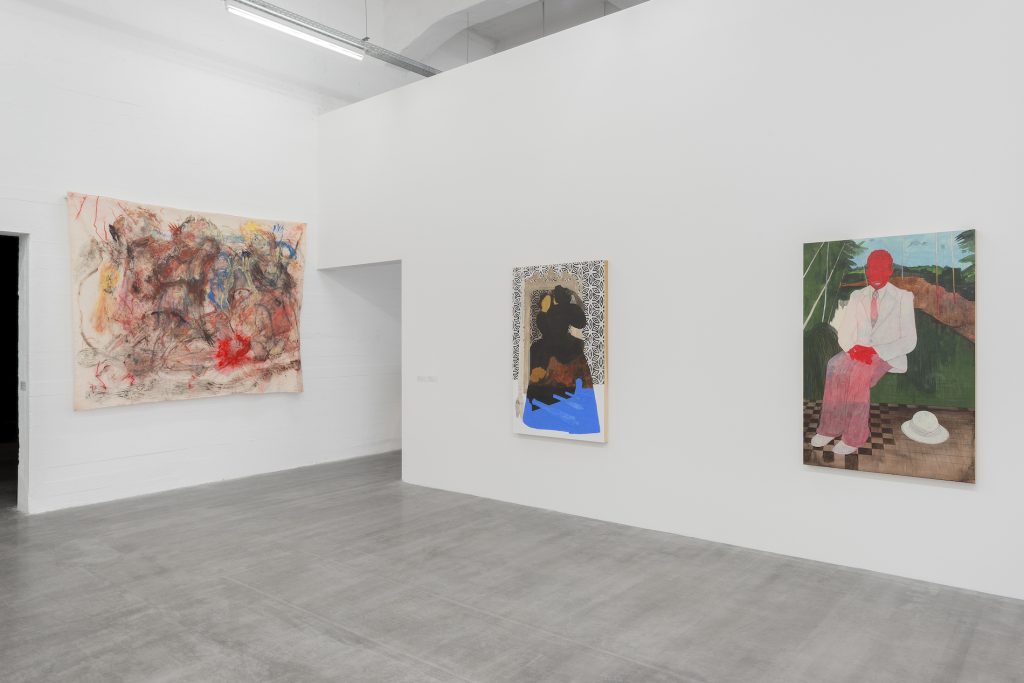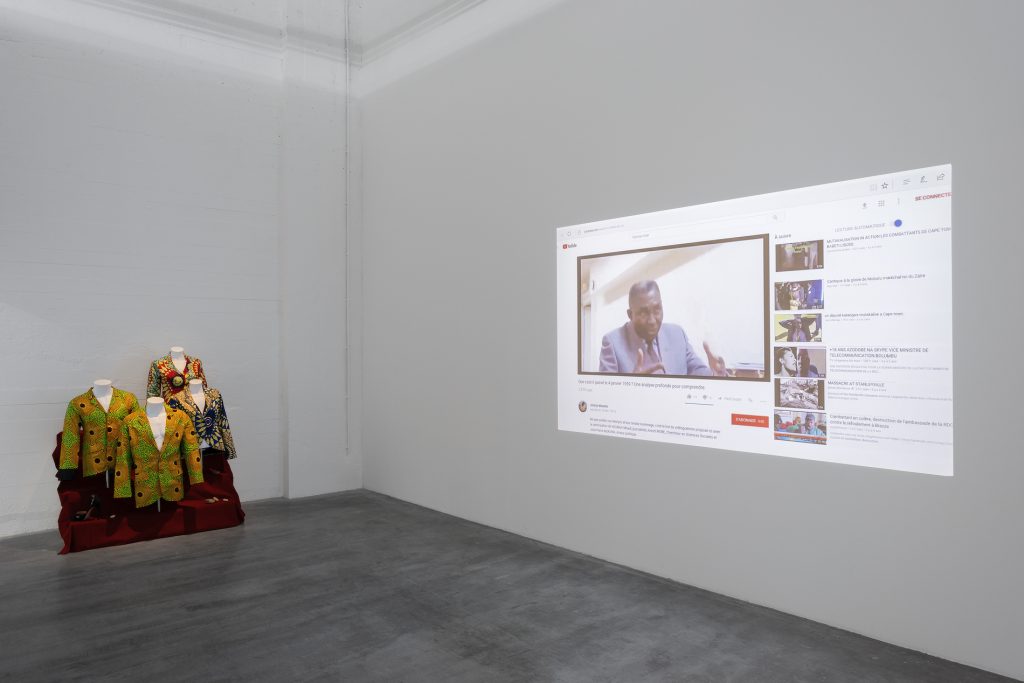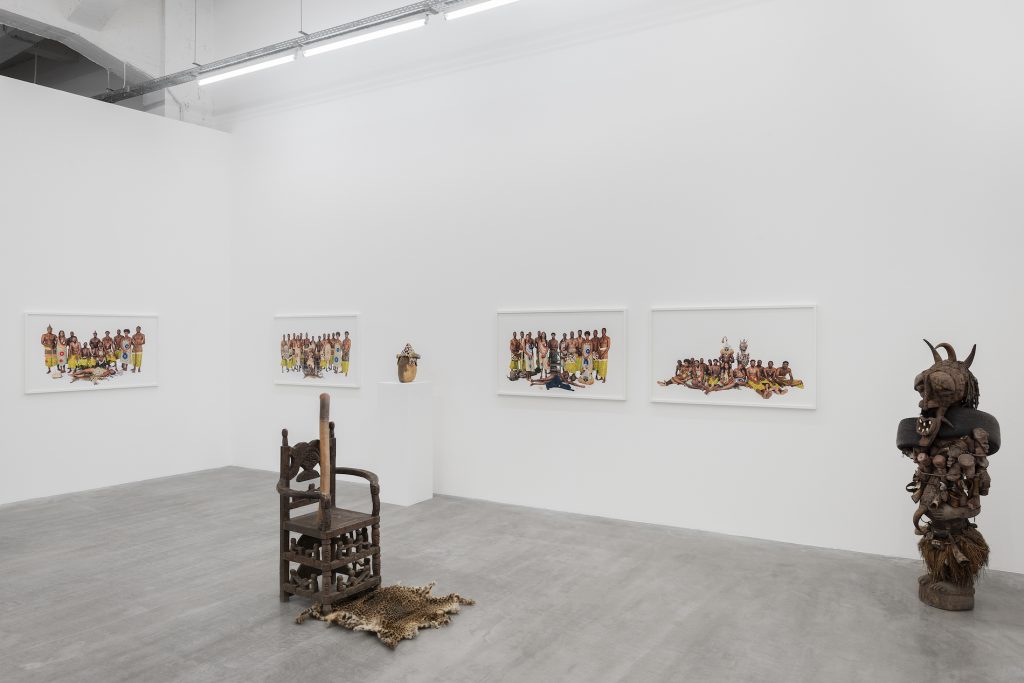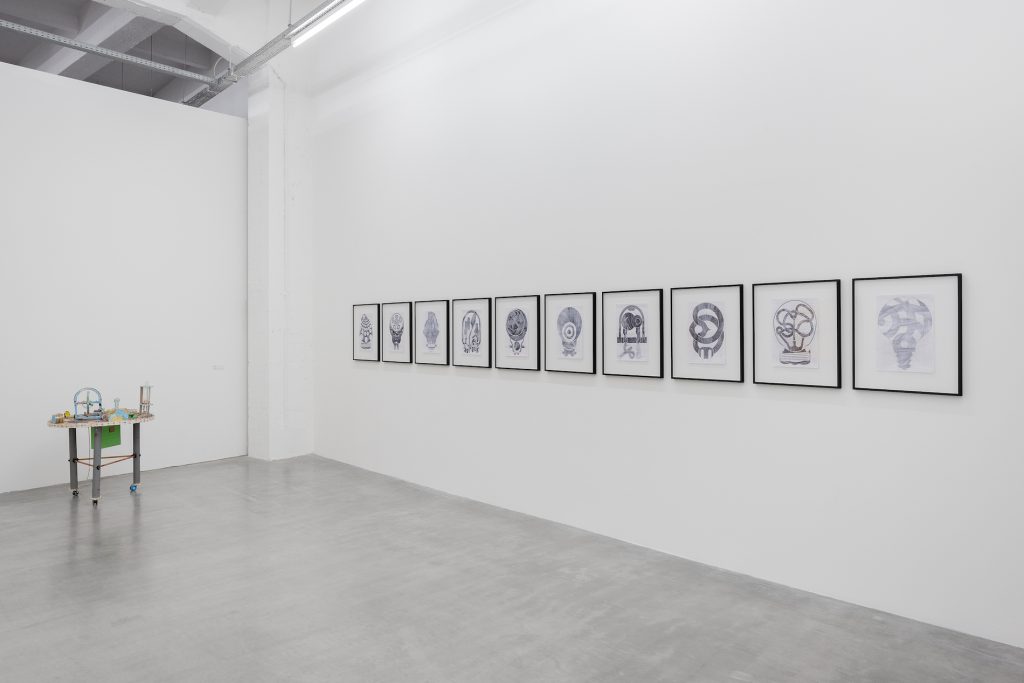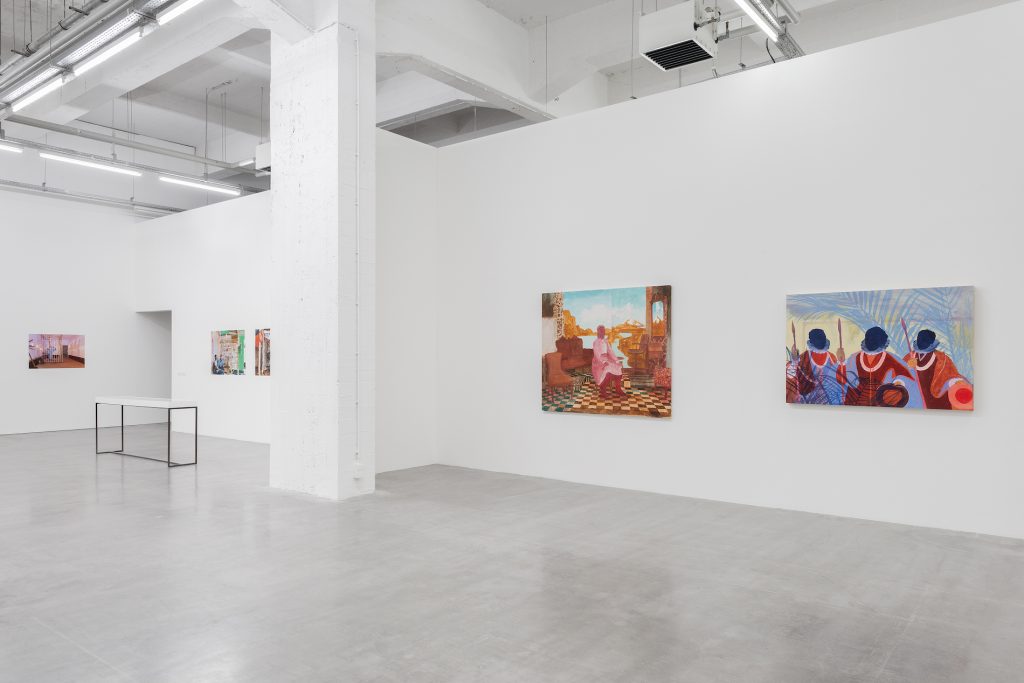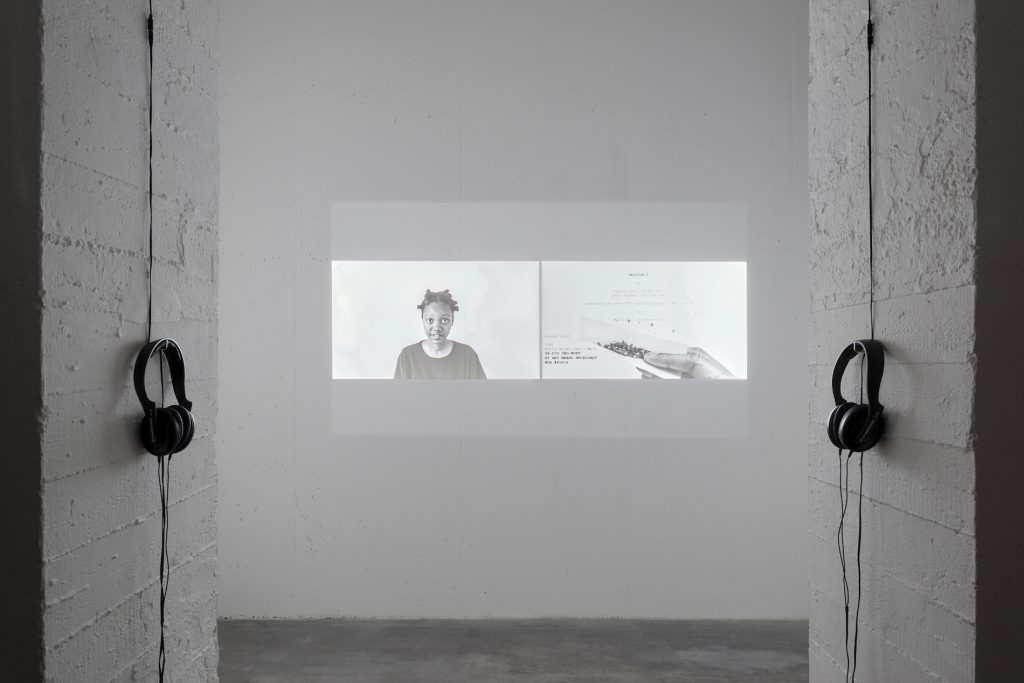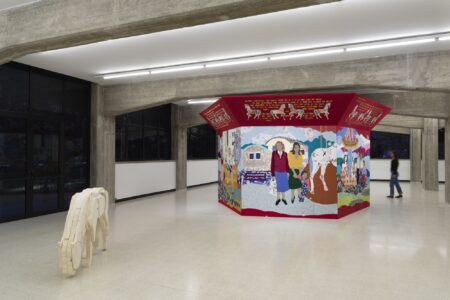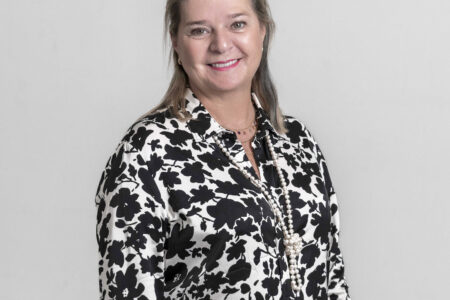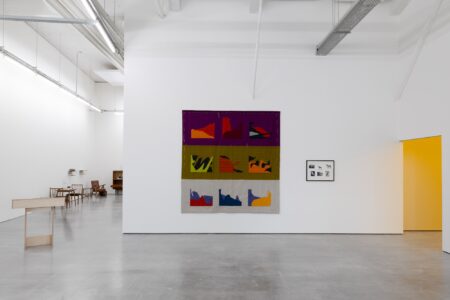Multiple Transmissions: a Variety of Perspectives
The show at Wiels Centre for Contemporary Art invited us to look at the transversal heritages and the global resonances of ideas, images, sounds and energies that characterize contemporary African art.
The show at Wiels Centre for Contemporary Art invited us to look at the transversal heritages and the global resonances of ideas, images, sounds, and energies that characterize contemporary African art. Imbued with the physical and mental movements that characterize our time – and which the popularity of artistic residencies have only amplified – these paintings, videos, installations, sound pieces, and photographic works weave physical and imaginary geographies, and nourish radically plural, or ‘Afropolitan’, artistic practices. It did so by presenting work made by artists who have taken part in the art center’s residency’s program: Through the work of Sinzo Aanza, Simnikiwe Buhlungu, Pélagie Gbaguidi, Jean Katambayi, Nelson Makengo, Emeka Ogboh, Pamela Phatsimo Sunstrum and Georges Senga, and curatorial work by Sandrine Collard, Assistant Professor of art history at Rutgers University (USA) and artistic director of the 2019 Lubumbashi Biennale.
In the 21st century ‘Afropolitanism’ describes the transnational and often urban cultures of numerous African or African descendants, in or out of the African continent. Mainly conceptualized by the philosopher Achille Mbembe, the idea of ‘Afropolitanism’ is historically rooted in the continuous movements that have characterized African populations – from labor migrations and the slave trade to postcolonial diasporas and exiles – and in foreigners’ convergences towards Africa – whether colonial conquests, economic migrations or other. Out of these physical, mental and now digital journeys and immersions, and their entanglements, an ‘aesthetics, and poetics of the world’ has emerged that transcends borders and nation-states.
The idea of transmission has been fundamental to our understanding of art’s evolution. Applied to the African arts in particular, notions of authenticity and unchanging traditions have long prevailed. Yet the emergence of contemporary African art scenes has continually short-circuited these traditional art-historical narratives. Without denying the genuine obstacles impeding the mobility of African artists, and without silencing migrations that are not always chosen, the idea of Afropolitanism forces us to be attentive to the local, continental and global dimensions that are shaping African arts today.
Every year, WIELS welcomes about 20 residents in the nine studios located in the heart of the building. This is a unique opportunity for these artists to be able to discuss their practices together, to develop their network and to discover the Belgian art scene for six months. For the past five years, the program has included at least one resident from Africa per year. This is a way for WIELS to highlight these artists and their work, which is still insufficiently known and recognized in the West. Created between Kinshasa, Austin, Johannesburg, Berlin, Lagos, Umbria, Lubumbashi and Brussels, the works of the eight artists presented in Multiple Transmissions offered us a variety of perspectives on their global influences.
Multiple Transmissions was on show at Wiels from the 25th of May until the 18th of August 2019.
